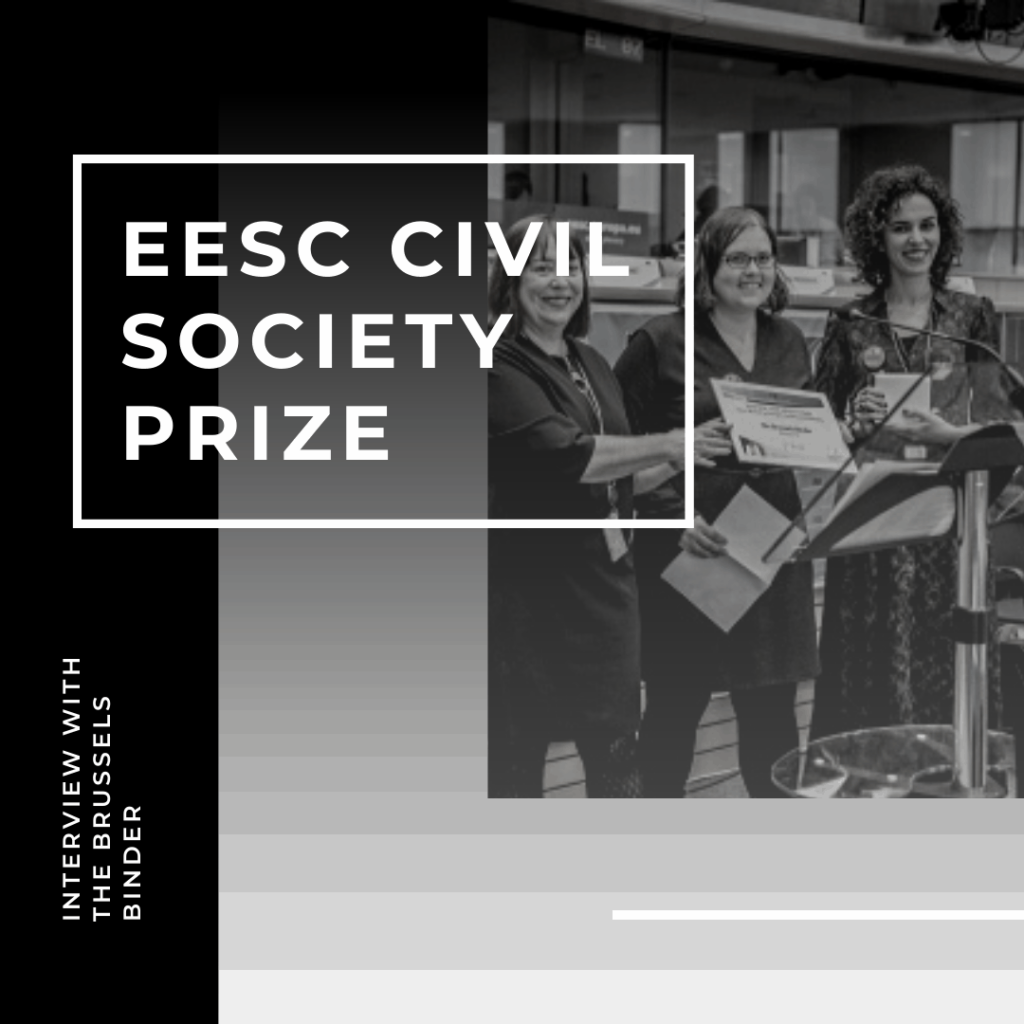Our interview after winning the EESC 2019 Civil Society prize

In December 2019, we were thrilled to win fifth place in the European Economic and Social Committee (EESC) Civil Society Prize. Read our previous article here to learn more about the prize, the other winners, and catch up on the ceremony!
Shortly after, one of our wonderful volunteers Juliane was interviewed by the EESC to explain our fight to change the face of Brussels debates.
Brussels hosts a huge number of debates every year. Two thirds of the speakers featured in such panels are male. However, there are plenty of women who could be relied on to bring both expertise and diversity to EU debates. Building a platform that can act as a hub for both women experts and panel organisers looking for speakers has been the core of the Brussels Binder strategy to fight this imbalance. EESC Info talked to Juliane Schmidt about their overall strategy to change the male face of Brussels panels.
EESC Info: What does this prize mean for you and your organisation?
Juliane Schmidt: The Brussels Binder strives for a change of culture in which equal gender representation becomes the norm. The EESC prize is an acknowledgment of the importance of our fight. Winning this prize for us means putting the issue of women’s representation at the top of the agenda, while also honouring our work to add to the vibrant civil society across Europe.
What advice would you give to other organisations in terms of achieving results with such activities and programmes?
The Brussels Binder is based on a very inclusive approach, aiming at building synergies with different partners and, in the long term, growing a network of like-minded organisations and groups across the EU. As an organisation, we follow feminist principles of leadership including sharing "power with" others and fostering the "power within" oneself. We work with volunteers, women driven by the idea of changing society, and we value inclusiveness and transparency, with all members being able to make their ideas and opinions heard.
How will you use this specific funding to provide further help in the community?
In addition to improving the technical quality of our database and website (brusselsbinder.org), this funding will help us engage in delivering training and workshops (for women professionals, as well as to raise awareness in organisations and companies), toolkits for conference organisers and participants, meet-ups and other events to build a community of women professionals and experts.
Gender quotas are part of a global trend to improve women’s representation in decision-making bodies. What is your opinion on this? Do you think introducing quotas is decisive in achieving gender balance on panels and in bodies? What else is needed?
Quotas are a chance to shift mentalities, raise awareness and contribute to avoiding unconscious biases and practices. At the same time, they are quite controversial and divisive. It is important to recognise that quotas should be a means to an end, and not an end in themselves. And they must be accompanied by other measures, such as awareness raising campaigns and training (for managers and women professionals).